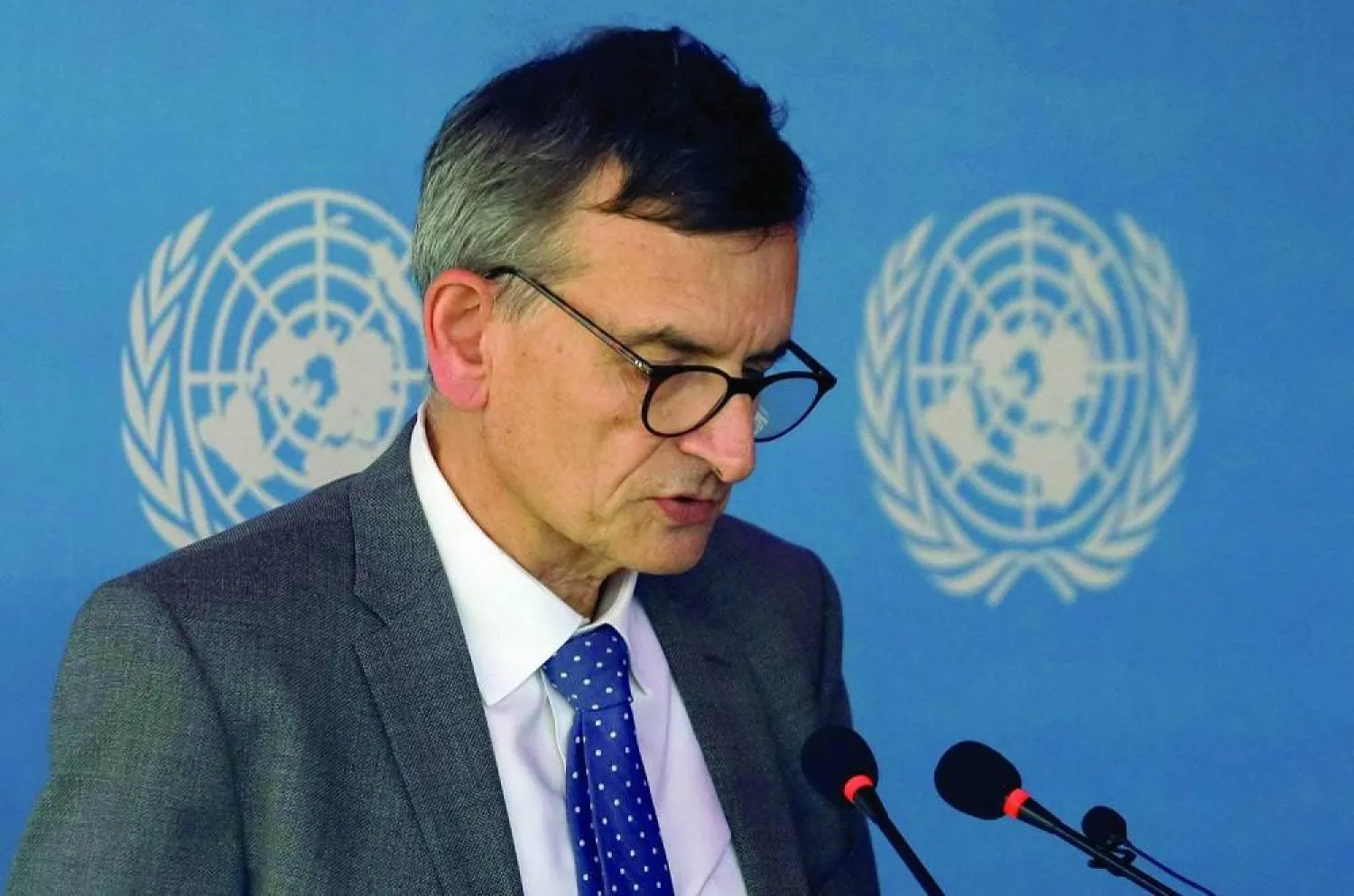Special Representative of the United Nations Secretary-General for Sudan and head of the UN Integrated Transition Assistance Mission in Sudan (UNITMAS), Volker Perthes warned that there is a potential ethnicization of the fighting between the armed forces and the Rapid Support Forces (RSF), which could prolong the conflict.
Explosions and artillery shelling were heard in Khartoum a few hours before the ceasefire agreement entered into force. However, the Sudanese army and the RSF affirmed their commitment to facilitating the passage of humanitarian aid to civilians in conflict areas.
Eyewitnesses told Asharq Al-Awsat that clashes erupted between the two parties in Omdurman.
The UN Security Council held a meeting to discuss the Secretary-General's latest report on the situation in Sudan and the activities of the UNITMAS.
The sessions included a briefing from Perthes, who stated that the fighting between the army, led by Lieutenant General Abdel Fattah al-Burhan, and the RSF, led by Lieutenant General Mohammad Hamdan Dagalo, showed no signs of slowing down, despite the repeated declarations of a ceasefire on both sides.
Perthes added that civilians paid a heavy price for this senseless violence, as it is estimated that more than 700 people, including 190 children, have been killed and 6,000 others injured since the fighting began on April 15.
In addition, over a million persons have been displaced from their areas, including more than 840,000 who sought refuge in rural areas and other states, while another 250,000 crossed the Sudanese borders.
Laws and norms of war
Perthes said that in Khartoum, Darfur, and elsewhere, the warring parties continue to fight without regard for the laws and norms of war.
"The frequently reported use of health facilities as military positions is unacceptable. I am appalled by the reports of sexual violence against women and girls, including allegations of rape in Khartoum and Darfur," he added.
He stressed that intimidation, harassment, and enforced disappearance are matters of great concern, pointing to the attack on UN facilities, including UNITMAS.
He expressed concern about reports of death threats against activists and political leaders, arrest of volunteers, and the intimidation of journalists.
Perthes discussed the clashes in El Geneina and West Darfur state where "ethnic violence escalated," and tribal militias joined the fighting.
He also cited reports of disturbing signs of tribal mobilization in South Kordofan and the Blue Nile region.
"The fighting throughout Sudan has resulted in serious human rights abuses and violations of international humanitarian law and undermined the protection of civilians. These violations must be investigated, and the perpetrators must be brought to justice."
Sudan's destruction
The envoy warned that their decision is destroying Sudan, and they can end it, asserting that the UN and its international partners had tried to prevent the situation from escalating.
He recalled "sounding the alarm" before the Security Council last March, the tripartite mechanisms, and the Quartet's efforts with the military leaders to calm the situation.
Moreover, Perthes regretted the hostilities that forced the UNITMAS mission to temporarily relocate its employees to Port Sudan and outside Sudan, asserting that it does not mean the UN mission has abandoned the people.
"We remain firmly committed to four immediate priorities: achieving a stable ceasefire with a monitoring mechanism, preventing the escalation or ethnicization of the conflict, protection of civilians and provision of humanitarian relief, and preparing, for when the time is ripe, a fresh political process with the participation of a broad array of civil and political actors, including women," he declared.
Saudi and US mediation
Furthermore, Perthes welcomed the "Saudi and US mediation that led to the signing of a Declaration of Commitments on May 11, an agreement on a seven-day ceasefire, and humanitarian arrangements on May 20."
He stressed the importance of this step which includes a commitment to reaching a stable ceasefire with a monitoring mechanism.
The UNITAMS is ready to support such a mechanism, said Perthes, stressing that the Sudanese civil society plays a decisive role in calling for peace.
He urged both sides to seriously engage in talks in good faith to advance a genuine ceasefire with a robust monitoring mechanism, stressing that at the end of the day, only a credible, civilian-led transition can lead to a lasting peace in Sudan.









